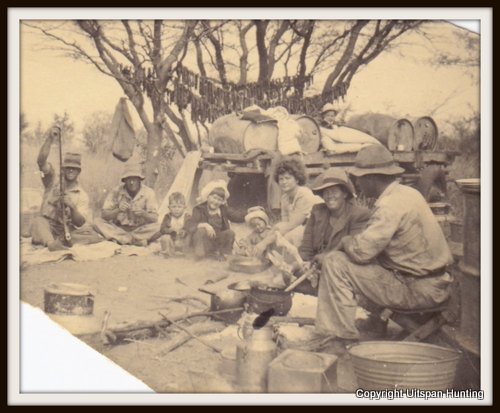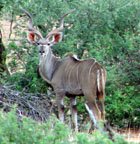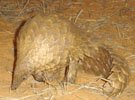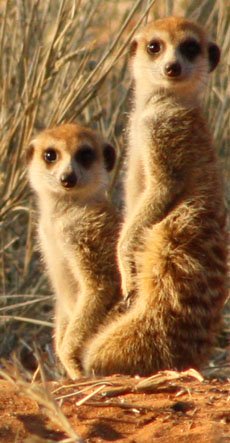For more information about our hunting safaris, don’t hesitate to reach out and contact us!
Aliens Do Exist
by IMY
(Lusaka)
"I hope fishing will improve", I told him, still disappointed from the previous day's catch.
"Boss, the key is not to give up", said Cryston. "I have been fishing for years, everyday is different", he tried to encourage us.
"I hope you packed the keep-nets", Ibrahim asked.
"Don't worry, I've checked everything", replied Zaheer.
"Why bother with the keep-nets, our entire catch will fit in my pocket", I joked, as the roar of the outboard engine broke the early morning silence. The water was so calm, it looked like a giant pane of glass. Daniel manoeuvred us steadily out of the shallow bay, dodging tree stumps that only seemed visible to him, and accelerated once we approached the deep waters.
The view was breathtaking. The rays beaming from the rising sun, partially covered by clouds, radiated a spectrum of vivid colours, like a masterpiece on a gigantic canvas. As our speed increased, each of us turned our heads downwards, away from the biting wind, clutching on to our fleeing hats.
We were in Zimbabwe, on the eastern basin of Lake Kariba, one of the largest man made lakes in the world. It is over 220km long and up to 40km wide. It derives its name from the Kariwa (the trap) gorge on the Zambezi river, where the construction of the dam wall was completed in 1958. Covering an area around 5500 square kilometres, the shoreline is abundant with wildlife, strolling the majestic mountains and islands. This hydro-electric reservoir lies on the border between Zambia and Zimbabwe. A tourism hub famous for it's houseboat cruises, it is world renowned as a haven for sport anglers attempting to outwit fish species ranging from the vundu (giant catfish) to the legendary tiger fish, of which these waters boast the world record. What we were after though, was an aquatic alien.
Although part of the tilapia (or bream) family, our target was relatively new to the lake. A fish that was not even heard of in these parts until some years ago, now well established and outgrowing other bream species by huge proportions. Revered by sea food lovers for it's exquisite taste, and sought by anglers for it's astonishing size, it's the fish responsible for many of my missed office hours (and my permanent suntan). A cichlid so challenging to catch, that very few triumphed at luring it, others justified their failure by doubting it's existence. Oreochromis Niloticus, or Nile Tilapia... it's the daddy of all breams. Simply called "Nilo" by fishermen, the mere thought of having one at the end of the rod would make any avid angler spend countless hours burning under the sun.
The water was no longer calm, and the boat ride was getting bumpier by the minute. Having twenty years of boating experience, Daniel negotiated the waves with ease as we raced to the so called "baited spot", hoping not to find anyone already fishing there.
"It's first come, first served on the lake", explained Cryston. "You can fish anywhere you want. Nobody has the right to force you away from a particular spot, even if they claim to have baited there". He was referring to a very controversial issue. A topic of much heated debate amongst anglers. A subject that has had irate fishermen draw swords in the past, vehemently defending their baited spots, like a mother hippo protecting her calf.
"Nobody's there", Daniel smiled, gradually decreasing the throttle as we approached a large island surrounded by dead trees half submerged in the water, and Cryston prepared to secure the ropes and anchors.
Cryston was a local priest, held in high esteem by his community. He supplemented his income as a part time fisherman. Daniel was a seasoned boatman, who was well acquainted with the lake through years of exploration, and accompanied Cryston regularly, in his quest for entrepreneurship. Together, the two formed a formidable team.
As a protected area, the use of nets around Antelope island was forbidden. Strict monitoring from authorities restricted harvesting fish in large numbers, promising better angling results than other areas of the lake. Thus forcing the two to resort to rod and reel instead, and ultimately they honed their angling skills, experimenting and perfecting new methods, around the area reputed to harbour prized fish.
Ever humorous, Daniel was a jack of all trades. He was never hesitant in sharing his knowledge and secrets. "Perseverance" was Cryston's motto, and like an expert guide, he toiled to ensure our success. And I salute the pair, because it was they, Daniel Malata and Cryston Kembo, who taught a myriad of today's self-proclaimed "professionals", the art of "nilo-fishing". The two are responsible for the influx of anglers seen today around the popular island.
The call of an African Fish-Eagle momentarily drew my attention to the tree top where it was nesting. A lone Buffalo bull was grazing on the island just a stone's throw away from where our boat was moored, and with the sound of hippos bellowing from a distance, I thought to myself, "aaah, this is the life".
The occurrence of the nile tilapia in lake Kariba was accidental. Globally it is the most common strain in tilapia aquaculture, preferred for it's rapid growth rate, disease resistance and economic value. In lake Kariba, apparently, fish farmers set up net cages in and around the lake to commercially breed the imported fish. Inevitably, thousands escaped from damaged nets and found themselves in open Kariba water, a perfect environment, a welcome sanctuary, and an ideal habitat, where indigenous tilapia had thrived for millennia. Perfectly adapted to warm tropical waters, the invasive specie multiplied rapidly, and today the lake is teeming with this protein rich, non native omnivore. The long term ecological consequences are unknown.
I was mesmerised by Ibrahim and Zaheer who were reeling in fish after fish, and after what must be my umpteenth fruitless cast, I decided to take heed of Cryston's advice.
By IMY
Comments for Aliens Do Exist
|
||
|
||
|
||
Meaning of "Uitspan"
'Uitspan' is an Afrikaans word that means place of rest.
When the Boer settlers moved inland in Southern Africa in the 1800's, they used ox carts. When they found a spot with game, water and green grass, they arranged their ox carts into a circular laager for protection against wild animals and stopped for a rest.
They referred to such an action of relaxation for man and beast, as Uitspan.

(Picture above of our ancestors.)
Did you know? Greater Southern Kudus are famous for their ability to jump high fences. A 2 m (6.56 ft) fence is easily jumped while a 3 m (9.84 ft) high fence is jumped spontaneously. These strong jumpers are known to jump up to 3.5 m (11.48 ft) under stress. |
Did you know? Some animals have one sense more than man!The flehmen response is a particular type of curling of the upper lip in ungulates, felids and many other mammals. This action facilitates the transfer of pheromones and other scents into the vomeronasal organ, also called the Jacobson's Organ. Some animals have one sense more than man!The flehmen response is a particular type of curling of the upper lip in ungulates, felids and many other mammals. This action facilitates the transfer of pheromones and other scents into the vomeronasal organ, also called the Jacobson's Organ.This behavior allows animals to detect scents (for example from urine) of other members of their species or clues to the presence of prey. Flehming allows the animals to determine several factors, including the presence or absence of estrus, the physiological state of the animal, and how long ago the animal passed by. This particular response is recognizable in males when smelling the urine of a females in heat. |


